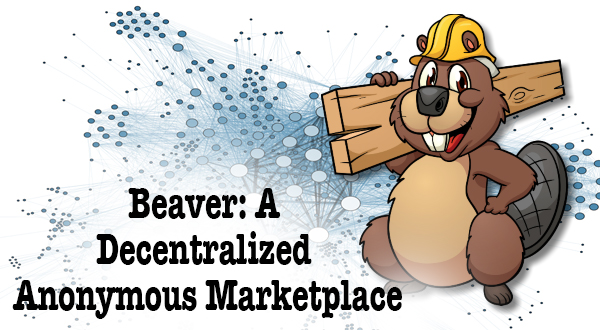Kyle Soska, Albert Kwon, Nicolas Christin and Srinivas Devadas four students from Carnegie Mellon and MIT wrote a paper called “Beaver: A Decentralized Anonymous Marketplace with Secure Reputation.” The written theory has been the topic of discussion as it’s found its way across multiple cryptocurrency forums this week. The piece details a sophisticated marketplace with privacy centric features in mind that’s focused on immutable reputations based on free market associations.
The paper describes an anonymous market by establishing a reputation system that is resistant to Sybil attacks in regards to vendor feedback and keeping customers private. The students evaluate the “shortcomings” of some other decentralized marketplaces such as OpenBazaar (OB) and the Silk Road 1. Currently, the framework for the popular OpenBazaar network does not support privacy-centric techniques like Tor due to its UDP protocol the report states. Alongside this fault, other marketplaces and platforms could suffer from Sybil attacks. This means a user could create a significant group of manipulative identities to ensure they have a positive reputation. Beaver’s white paper states:
“In this paper, we introduce a formal model for a decentralized anonymous marketplace (DAM), and design Beaver, a Sybil-resistant DAM. Beaver is designed with e-commerce in mind, and consists of three types of participants: customers, vendors, and network miners. Unlike most existing approaches, participation in Beaver is free, open, and does not use a trusted third party. From the perspective of customers and vendors, Beaver behaves nearly identically to existing e-commerce systems such as Amazon Marketplace and eBay.”
Beaver’s decentralized anonymous marketplace (DAM) claims its structure could establish a better reputation system and “strong anonymity to its customers.” The idea of the marketplace uses an anonymous payment system with an array of cryptographic primitives. The paper references Zerocash an extension that adds a layer of privacy to the Bitcoin protocol first proposed by Matthew D. Green, Ian Miers, and Christina Garman. Because of this anonymity feature Beaver’s creators believe it enables a better reputation system free from “targeted customers that are convinced of incorrect statements about another user’s reputation.”
The report says that transactions and reviews are made public, yet customers and vendors collaborations always remain anonymous. Sybil attacks commonly rely on user identities and their histories, but if the information is kept private like Beaver’s application, then this method is not likely. Despite the novelty of using Zerocash and the topic of increased anonymity this paper is only a theory and has not been put into practice. The authors do not mention in the report if they plan to create the Beaver marketplace concept. However, one of the writers Albert Kwon recently appeared in the Dark Net forums subreddit saying, “Hi, one of the authors here. We are working on getting some performance numbers at the moment, but we would love to actually start implementing them, and make it something real!” Following this comment from Kwon, author Kyle Soska explains, “performance numbers in terms of quickness and in terms of blockchain size for the operations in Beaver.” Alongside the applied Zerocash concept, the developers mention using zero proof knowledge and ring signatures which are used in privacy-centric cryptocurrencies like Monero.
Of course, the Beaver DAM is currently only an idea, and if started, it may take quite a bit of effort to get the project on its own two legs. It would be a while before it could rise above the dominant OpenBazaar platform that has been actively building for quite some time. As well as compete with current Darknet Markets such as Alphabay and Silk Road 3. Also, the well known OpenBazaar is planning on additional privacy-centric features in the future such as Tor support. Will Beaver’s theory come to fruition? Time will tell if it becomes more than just a paper.
Source: Beaver White Paper
